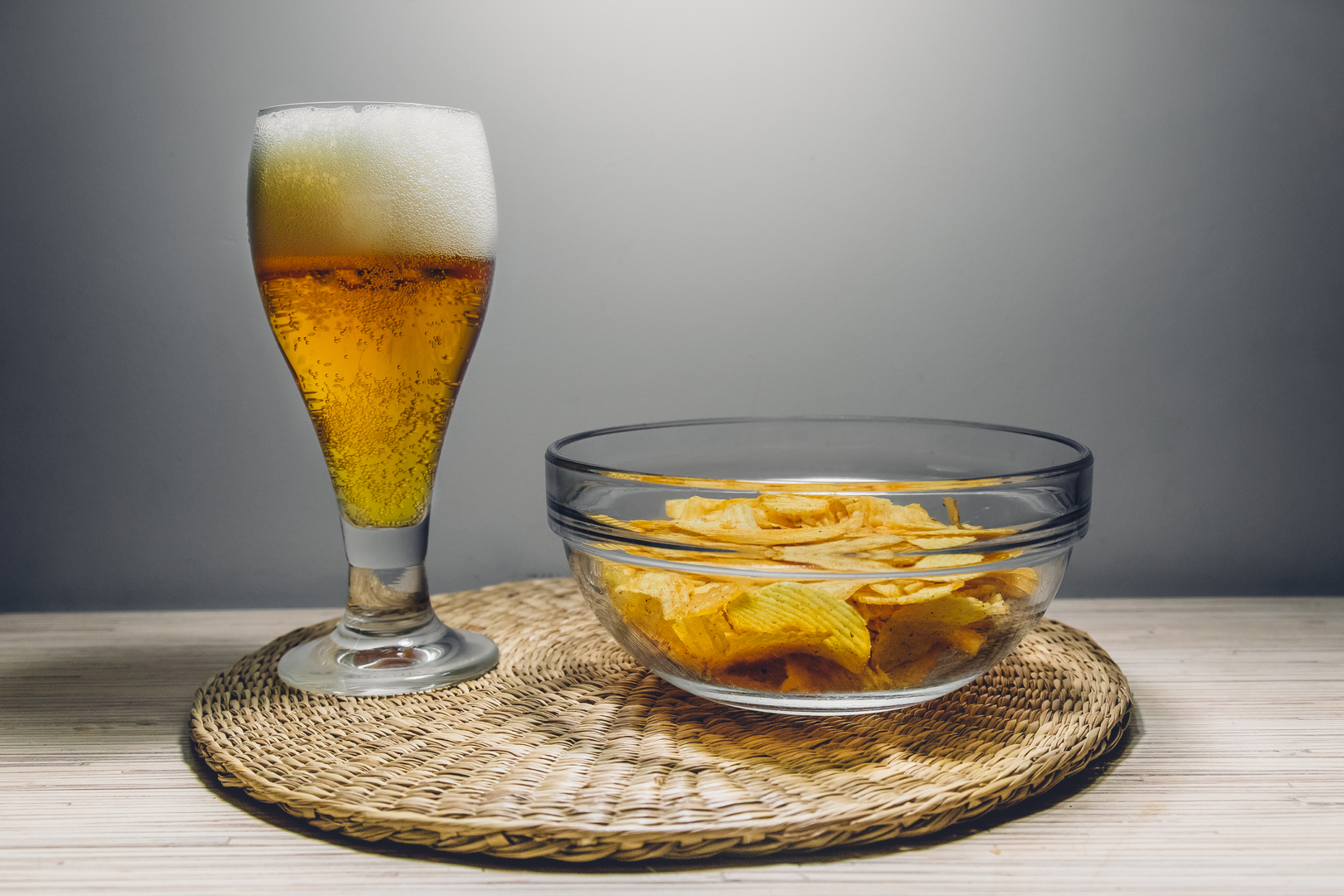News release
From:
Investigating the ‘aperitif effect’ – why alcohol makes us reach for savoury food and how that affects calorie intake
- Drinkers who chose high-protein food consumed fewer calories overall than non-drinkers, indicating drinking alcohol needn’t necessarily lead to weight gain
- But opting for crisps, sausage rolls and other fatty snacks pushes up the calorie count
Drinking alcohol increases appetite for savoury food – but needn’t necessarily lead to weight gain, new research being presented at the International Congress on Obesity in Melbourne (18-22 October) (the biennial congress of the World Obesity Federation) indicates.
Alcohol is energy dense but the evidence that it contributes to weight gain is inconclusive. One reason for this may be that research to date has typically looked at the effect of alcohol in isolation, rather than in conjunction with other dietary components.
To find out more, Dr Amanda Grech, of The University of Sydney, Australia and colleagues examined how alcohol affects the appetite for different types of food and the subsequent calorie intake.
“It’s known that alcohol increases appetite, particularly for savoury food, a phenomenon that’s known as the ‘aperitif effect’,” says Dr Grech, lead author of the study.
“Recent research has shown that levels of FGF-21, a hormone that increases protein appetite and suppresses appetite for sweetness, increase after alcohol is consumed.
“It’s also known that protein has a satiating effect. We wanted to find out whether people select more protein-rich savoury foods when drinking alcohol and, if they do, whether the satiating effect of additional dietary protein leads to them taking in fewer calories overall, despite the additional energy from alcohol itself.”
Dr Grech analysed data on 9,341 adults who took part in the Australian National Nutrition and Physical Activity Survey, the largest and most comprehensive health survey ever conducted in Australia. The team used an approach called nutritional geometry, which was invented by team members Professors David Raubenheimer and Stephen Simpson, to detect complex nutritional associations in diets. It untangles the multi-dimensionality of diet as when one nutrient changes, other nutrients change as a consequence. The approach allows multiple components to be observed at the same time and to observe how nutrients interact.
The data included information on the food and drink each participant had consumed over a 24-hour period, the total amount of energy consumed during that period and how much of that energy came from protein, fat, carbohydrate and other nutrients. 40% of the participants had consumed alcohol.
The analysis showed that, as expected, participants who had consumed alcohol consumed more savoury foods than those who didn’t have any alcohol.
“Surprisingly,” says Professor David Raubenheimer, senior author of the study, “this was associated with decreased energy intake in some consumers of alcohol, but increased energy intake in others”.
Around two-thirds of those who consumed alcohol chose foods high in protein but low in carbohydrate and fat, such as lean meats, poultry, fish, seafood, nuts, legumes and other foods that are high in protein.
They consumed 1,749kcal (calories), on average. The figure, which includes the calories from the alcohol they consumed, is 577kcal fewer than they needed to maintain their current weight (known as EER or estimated energy requirement) and 451kcal fewer than the 2,200kcal consumed by the non-drinkers.
The other one-third of participants who consumed alcohol chose “protein decoys”. These are crisps, sausage rolls, processed meats, garlic bread, spring rolls, potato wedges and other savoury snacks that have umami taste of high-protein foods but are, in fact, low in protein and high in fat.
They consumed 3,051kcal on average. This is meant they were taking in more calories (813kcal) more than their EER which, over time, can lead to weight gain.
The researchers conclude that although alcohol is energy dense, drinking it need not necessarily lead to weight gain.
However, in the current obesogenic food environment, low-protein, high-fat snack foods are abundant and inexpensive, and so alcohol may indeed be contributing to the obesity epidemic.
Dr Grech adds: “When consuming alcohol and your appetite is elevated, make sure you select healthier lean protein sources such as lean red meat, chicken, fish, seafood or legumes and avoid the urge to snack on low-protein, savoury snack foods.
“This will ensure that your protein appetite is satisfied without over consuming energy, leading to weight gain.
“Above all, be sure to stick within the guidelines for alcohol intake, which poses health risks other than weight gain and obesity.”
The researchers suggest that those who wish to eat healthily while consuming alcohol snack before, rather than instead of, a meal. Suitable snacks include a serving of cheese (40g), unsalted nuts, chickpeas and vegetable sticks with tzatziki or hummus made with fresh ingredients.



 Australia; NSW
Australia; NSW


